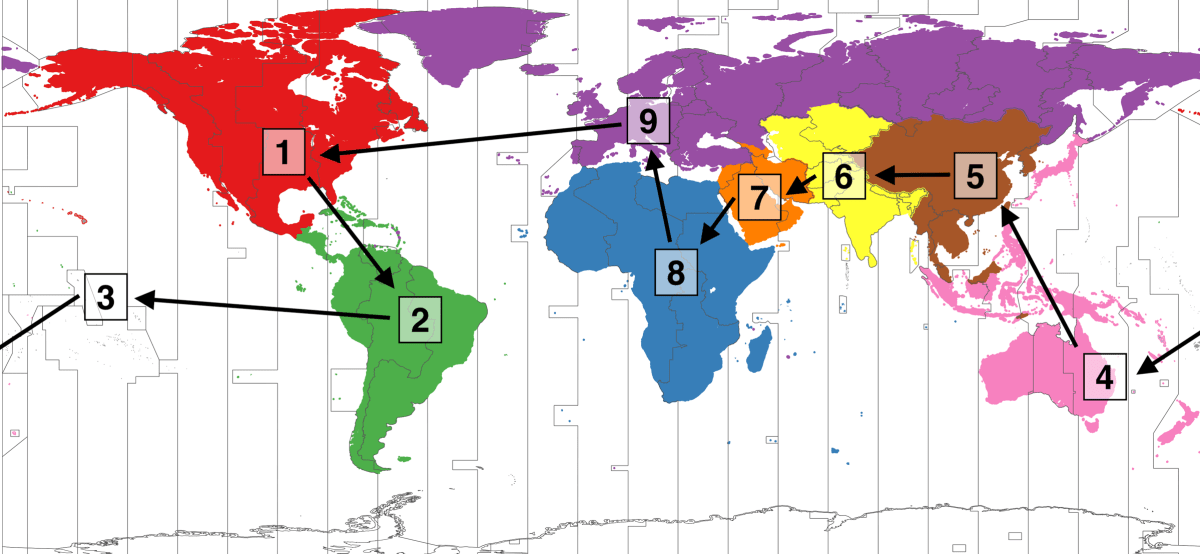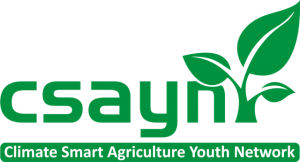
Accelerating toward water security: how can we use citizen science and innovative low-cost sensor technologies?
A world-wide marathon relay of ideas and recommendations to empower community-based water research.
This event will take place over a 24-hour period. The relay will start at the CUNY ASRC at 12 p.m. on June 16, 2025. Register to attend at https://bit.ly/42SRM2n
Building on the CUNY ASRC 2023 global virtual marathon, the 2025 marathon will leverage existing networks of students, educators, scientists, and citizen scientists working together to find solutions to water related issues using scientifically useful sensors monitored by community volunteers working with scientists. Framed as a debate, the event addresses two central questions:
- How can we empower and build the capacity of communities to develop science-based solutions to their water problems using GLOBE and other citizen science programs?
- How can we leapfrog the collection and analysis of data using 3D printing, DIY low-cost sensors, existing open data frameworks, and other technologies such as Artificial Intelligence (AI)?
The debate will consider the domains of data and information, capacity development, governance, innovations, and financing.
Sectors such as agriculture, health and energy have a major impact on the use and quality of water. Universities can join hands in a dialogue with governmental, civil society especially citizen science organizations, and business stakeholders to improve this situation. Together this alliance encompasses a large diversity of perspectives and uses knowledge from a broad set of scientific disciplines.
How does it work?
The event will start on June 16, 2025 at 12 p.m. in New York at the CUNY ASRC, while broadcast via Zoom, and continue online around the world until the final discussion session at 11 a.m. ET June 17, 2025.
All participating institutes will be organized in region and time zone groupings. In these groups a central hub will lead the debate. The central group hub passes the debate on to the next central group hub. All sessions will take place in Zoom and are open to participants from the two time zones.
After nine sessions and 24 hours, there will be a final synthesis session during the 2025 Sustainability Research and Innovation Congress.
The groups and example locations are shown in the table below.
| NYC Day | Session | NYC Time (EST) | Local Time |
| NYC (Opening) | 12:00 – 13:00 EST (16 June) | ||
| North America | US/Canada | 12:00 – 14:00 EST (16 June) | 11:00 – 13:00 (16 June) |
| North America | US/Canada/Mexico | 12:00 – 14:00 EST (16 June) | 10:00 – 12:00 (16 June) |
| North America | US/Canada – Pacific Rim | 12:00 – 14:00 EST (16 June) | 9:00 – 11:00 (16 June) |
| North America | US (Alaska) | 12:00 – 14:00 EST (16 June) | 8:00 – 10:00 (16 June) |
| BREAK | 14:00 – 15:00 EST (16 June) | ||
| South America/Caribbean | Peru | 15:00 – 17:00 EST (16 June) | 14:00 – 16:00 (16 June) |
| South America/Caribbean | Argentina | 15:00 – 17:00 EST (16 June) | 16:00 – 18:00 (16 June) |
| South America/Caribbean | Paraguay | 15:00 -17:00 EST (16 June) | 16:00 -18:00 (16 June) |
| South America/Caribbean | Bolivia | 15:00 – 17:00 EST (16 June) | 15:00 – 17:00 (16 June) |
| South America/Caribbean | East Brazil | 15:00 – 17:00 EST (16 June) | 16:00 – 18:00 (16 June) |
| Pacific Islands | US (Hawaii) | 17:00 – 19:00 EST (16 June) | 11:00 – 13:00 (16 June) |
| Pacific Islands | East Polynesia | 17:00 – 19:00 EST (16 June) | 12:00 – 14:00 (16 June) |
| Pacific Islands | Kiribati | 17:00 – 19:00 EST (16 June) | 9:00 – 11:00 (17 June) |
| Pacific Islands | Vanuatu | 17:00 – 19:00 EST (16 June) | 8:00 – 10:00 (17 June) |
| Pacific Islands | Guam | 17:00 – 19:00 EST (16 June) | 7:00 – 9:00 (17 June) |
| BREAK | 19:00 – 20:00 EST (16 June) | ||
| West Pacific Rim | Sydney | 20:00 – 22:00 EST (16 June) | 10:00 – 12:00 (17 June) |
| West Pacific Rim | Perth | 20:00 – 22:00 EST (16 June) | 8:00 – 10:00 (17 June) |
| West Pacific Rim | Tokyo | 20:00 – 22:00 EST (16 June) | 9:00 – 11:00 (17 June) |
| West Pacific Rim | Auckland | 20:00 – 22:00 EST (16 June) | 12:00 – 14:00 (17 June) |
| South East Asia/China | China/Manila | 22:00 – 00:00 EST (16-17 June) | 10:00 – 12:00 (17 June) |
| South East Asia/China | Bangkok | 22:00 – 00:00 EST (16-17 June) | 9:00 – 11:00
(17 June) |
| BREAK | 00:00 – 1:00 EST (17 June) | ||
| South/Central Asia | Karachi | 1:00 – 3:00 EST (17 June) | 10:00 – 13:00 (17 June) |
| South/Central Asia | Hyderabad | 1:00 – 3:00 EST (17 June) | 10:30 – 13:30 (17 June) |
| South/Central Asia | Kabul | 1:00 – 3:00 EST (17 June) | 9:30 – 11:30 (17 June) |
| South/Central Asia | Tashkent | 1:00 – 3:00 EST (17 June) | 10:00 – 12:00 (17 June) |
| BREAK | 3:00 – 4:00 EST (17 June) | ||
| Middle East/Russia | Tehran | 4:00 – 6:00 EST (17 June) | 11:30 – 1:30 (17 June) |
| Middle East/Russia | Tel Aviv | 4:00 – 6:00 EST (17 June) | 11:00 – 13:00 (17 June) |
| Middle East/Russia | Istanbul | 4:00 – 6:00 EST (17 June) | 11:00 – 13:00 (17 June) |
| Middle East/Russia | Moscow | 4:00 – 6:00 EST (17 June) | 11:00 – 13:00 (17 June) |
| Africa | Addis Ababa | 6:00 – 8:00 EST (17 June) | 13:00 – 15:00 (17 June) |
| Africa | Cape Town | 6:00 – 8:00 EST (17 June) | 12:00 – 14:00 (17 June) |
| Africa | Lagos | 6:00 – 8:00 EST (17 June) | 11:00 – 13:00 (17 June) |
| BREAK | 8:00 – 9:00 EST (17 June) | ||
| Europe | Athens | 9:00 – 11:00 EST (17 June) | 16:00 – 18:00 (17 June) |
| Europe | Paris | 9:00 – 11:00 EST (17 June) | 15:00 – 17:00 (17 June) |
| Europe | London | 9:00 – 11:00 EST (17 June) | 14:00 – 16:00 (17 June) |
| Europe | Reykjavik | 9:00 – 11:00 EST (17 June) | 13:00 – 15:00 (17 June) |
| Chicago (Closing) | 11:00 – 12:00 EST (17 June) | 11:00 – 12:00 (17 June) |



